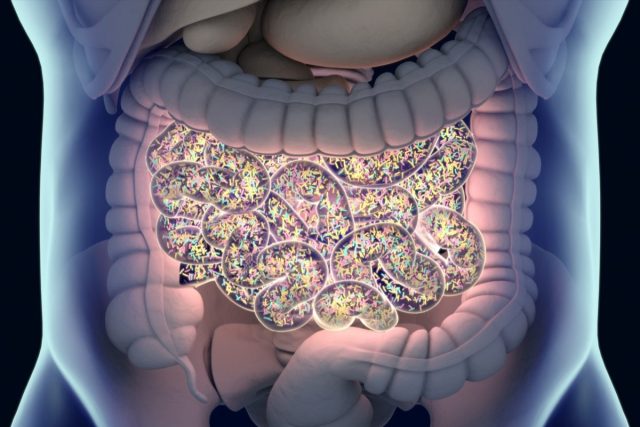Unlocking the Power of This Nutrient: A Pathway to Enhanced Fat Burning and Digestive Wellness
In recent years, gut health has emerged as a buzzing topic, and it’s easy to see why. Our digestive systems are home to a staggering trillion bacteria. These tiny inhabitants play a significant role, influencing everything from your immune function to your metabolism, and even your mental health. Yet, amidst this intricate web of biological interactions, there’s one nutrient that often flies under the radar: fiber.
- Advertisement -
Think of dietary fiber as Mother Nature’s little powerhouse, found abundantly in plant foods. It does everything from improving digestion to boosting immune health and reducing inflammation. However, it’s important to note that fiber isn’t just a one-size-fits-all solution; it encompasses various forms, primarily soluble fiber, which dissolves in water, and insoluble fiber, which remains intact. Both types play crucial roles in maintaining digestive health. While fiber is known for keeping the digestive system in working order, research indicates it also nurtures a balanced gut microbiome. A recent study in Frontiers in Nutrition found that a high-fiber diet is linked to a lower risk of chronic ailments such as diabetes, heart disease, and colorectal cancer.
So, how can you boost your fiber intake, and which foods should you focus on? To shed light on this, we had a chat with Caroline Young, a registered dietitian and the mastermind behind Completely Self-Caring. She explained why fiber is pivotal for gut health and how to incorporate it into your diet for happier bowels and enhanced overall wellness.
(Next up: Uncover the ten warning signs indicating your fiber intake might be too low.)
Fiber: The Indispensable Ally Against Indigestion
Insoluble fiber can be found in whole grains, nuts, and vegetables, playing a vital role in moving food through the gastrointestinal tract. It adds bulk to stool for smoother passage. On the flip side, soluble fiber, present in fruits and some vegetables, absorbs water and forms a gel-like substance, which actually slows down digestion.
“Fiber keeps us regular, which is essential for a healthy digestive system,” Young emphasizes.
Insoluble fiber, in particular, is crucial as it keeps everything moving along in the intestines, helping prevent constipation. On the other hand, the Centers for Disease Control and Prevention suggests that soluble fiber can help maintain healthy blood sugar and cholesterol levels.
Fiber: A Boost for Your Immune System
According to Young, fiber “feeds our gut bacteria,” and these microbes play a significant role in supporting our immune function. Considering that a vast portion of the body’s immune system resides in the gut, nurturing your gut health is key to overall immune vitality. A study published in 2022 in Nutrients revealed that fiber can help modulate the immune response and lower the risk of chronic inflammation.
“Higher fiber intake is associated with improved gut microbiota, helping to stave off inflammatory conditions and bolstering overall immune function,” adds Young.
Fiber: Your Secret Weapon for Weight Management
Studies suggest that fiber can be your best friend in the quest for weight loss. It helps you feel fuller for longer, reducing those pesky mid-afternoon cravings. While fiber itself doesn’t light a fire under your metabolism, it’s crucial for metabolic health. By keeping blood sugar levels steady and aiding in weight management and digestive health, it’s a trifecta for your body.
The Ultimate Fiber-Rich Foods to Include in Your Diet
For a fiber boost, look no further than oats, beans, lentils, apples, carrots, and citrus fruits for your soluble fiber fix. Meanwhile, indulge in whole grains, brown rice, nuts, and veggies like broccoli and cauliflower for your insoluble fiber.
To promote optimal gut health, Young recommends a smorgasbord of fiber-rich delights in your meals. “Soluble fibers are primarily found in fruits and veggies, whereas insoluble fibers are prevalent in grains and barley,” she elaborates.
In reality, enhancing your fiber intake doesn’t have to be a complicated affair. Start by tossing some berries or banana slices onto your morning oats, swapping out refined grains for their whole counterparts like quinoa and oats. Munch on snacks like nuts or dried fruit, and be sure to add veggies to your lunchtime and dinner spread. These straightforward adjustments can help you hit your daily fiber targets and fortify your gut health.
Should You Consider Fiber Supplements?
While getting your fiber fix from foods is the gold standard for gut health, some folks find it challenging to meet daily fiber needs through diet alone. In such cases, fiber supplements can be a useful ally. But Young advises caution: “Supplements should really only be a backup, and it’s best to collaborate with a healthcare provider to figure out the ideal approach for you.”
If you’re struggling to hit your fiber mark through meals, options like psyllium husk or inulin can be beneficial. However, whole foods should always play first fiddle to maximize health benefits, as some people may experience digestive discomfort from fiber supplements. Your ultimate aim should be to gradually enhance your fiber intake through natural food sources, rather than becoming overly reliant on supplements.
Report By Axadle





